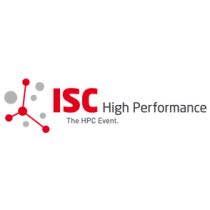 Registration opened today for the ISC High Performance conference, which takes place June 19-23 in Frankfurt.
Registration opened today for the ISC High Performance conference, which takes place June 19-23 in Frankfurt.
This year, the ISC 2016 conference program features an increased focus on Cloud, Machine Learning, and Robotics. In fact, insideHPC has learned that bulk of topics normally covered at the annual ISC Cloud conference have been absorbed into the ISC High Performance industry track. To learn more, we caught up with Wolfgang Gentzsch, a member of the ISC Steering Committee who has chaired the ISC Cloud event since its beginnings.
insideHPC: ISC Cloud is being absorbed into ISC High Performance. It seems like the HPC community, predominantly the scientific community, refuses to address any of these topics separately, be it cloud or deep learning. As chair of that event for the past few years, can you tell us why this change was made?
Wolfgang Gentzsch: Over the last few years we have seen a growing acceptance of HPC in the Cloud, now slowly moving towards mainstream. The ISC Cloud conference series started in 2010, just one month after Amazon AWS announced their first Cluster Compute Instances for EC2. In our cloud community, this seems almost like a century ago. Since then we have sees a strongly accelerating acceptance of Cloud for HPC. For example, in 2015, in a sudden move, cloud computing disappeared from the Gartner Hype Cycle curve, beyond the so-called Plateau of Productivity. HPC Cloud always follows the general cloud trend with perhaps a few years distance. At the same time we saw the number of ISC Cloud participants slowly decreasing, which is another typical sign that many HPC cloud providers and end-users are turning to the implementation of cloud services into their daily business. Therefore the ISC organizers have integrated the few hot topics in areas like HPC Cloud and Big Data back into the big ISC, in the context of other hot topics now like machine learning or the Internet of Things.
insideHPC: I was at a recent HPC event where nearly one third of the talks were about HPC Cloud. Do you think this is indicative to what is going on in terms of the HPC community embracing Cloud as way to deliver HPC services?
Wolfgang Gentzsch: That’s exactly what we observe at ISC and UberCloud too. It’s no longer about the Why and the What in HPC Cloud, but rather it’s just about the When; when should I start taking HPC Cloud into account for my business? In the last three years we have seen a growing interest in our cloud experiments, and this is now trending toward paid cloud trials and commercial production. BTW, mentioning our cloud experiments, another important trend we see is the success rate and the duration of these experiment: while 3 years ago only about 50% of the cloud experiments succeeded, today the success rate is 100%, and the average duration of an experiment went from 3 months down to less than one week, In fact, some of them even take less than a few hours, including writing a case study.
insideHPC: Will Cloud have its own complete track at ISC High Performance?
Wolfgang Gentzsch: No, it will not have a discrete track of its own. You’ll see Cloud as a core technology and business that will feature prominantly in the Industry Track sessions like in Connected Cars, Big Data, and the Internet of Things
insideHPC: You’ve been watching this space since the beginning. What are barriers to HPC Cloud that have gone away and which ones still remain?
Wolfgang Gentzsch: When we started with our UberCloud experiments in 2012, we identified about 10 barriers which at that time many seemed insurmountable — things like security issues, intellectual property, slow data transfer, traditional software licensing, loosing control over your resources and assets, and more. Most of these barriers have disappeared in the meantime, which I have described in an article on our website. Some of them have not, but they can be resolved by the end-user, like the last-mile problem, and some have disappeared completely but are still in people’s minds, like security, which in the meantime is often stronger in the cloud than on SMBs’ premises.
insideHPC: We’ve been reading a lot about the use of containers as a way to make it easier to deploy HPC in the Cloud. What has been your experience with this over at the UberCloud?
Wolfgang Gentzsch: With software containers comes a new era of cloud computing, and software in general, is emerging. Our HPC Containers are based on open-source Docker as their lowest technology layer, which makes them fully portable across all Linux flavors, and they evolve in real time as the fast growing Docker community and technology evolve. These containers foster packageability, portability, (quasi-) standardization, accessibility, and usability, and they come with very low overhead. Within HPC these containers are highly secure because they (should) run on single-tenant environments. And because the end-user’s software is pre-packaged into the container, access and use is at your fingertips, within seconds. No need to know anything about the underlying HPC stack, be it workstation, server, or any on-premise or public cloud. As soon as the containers have created enough awareness among engineers and scientists in our broader HPC community, in my opinion, we’ll see a dramatic growth of Cloud acceptance in HPC.





